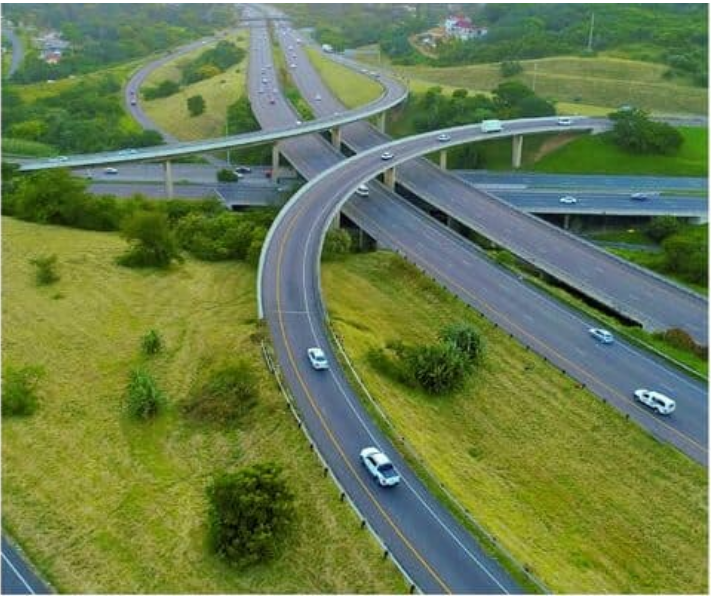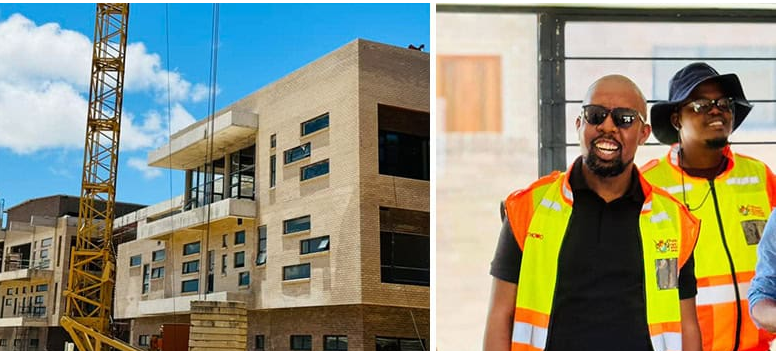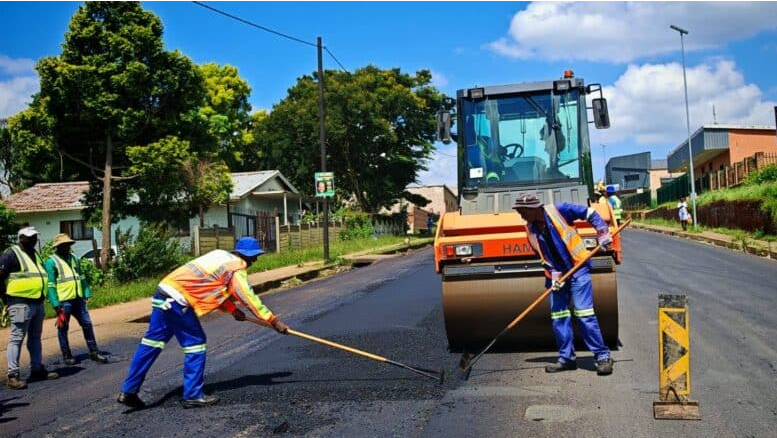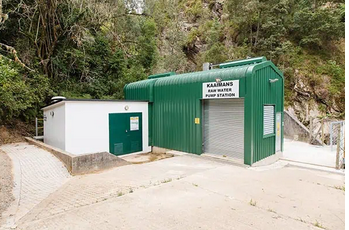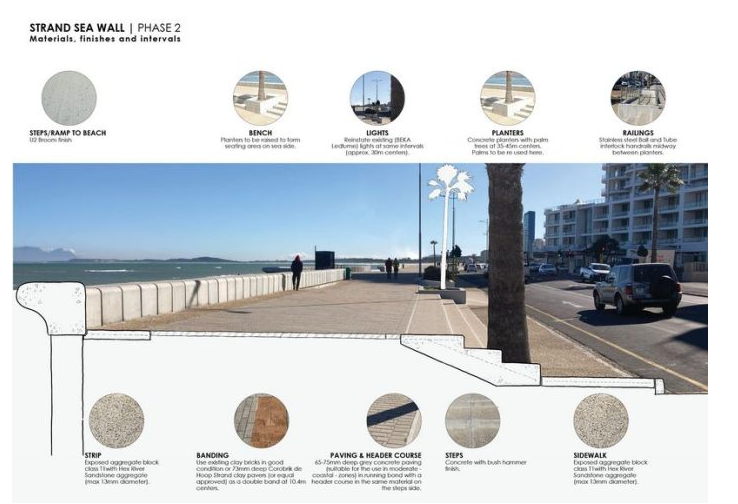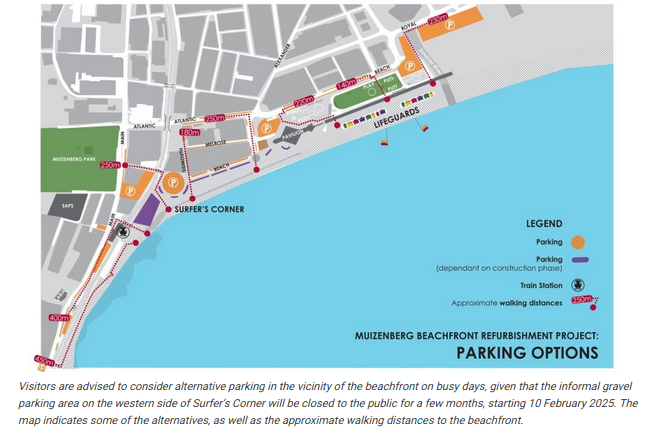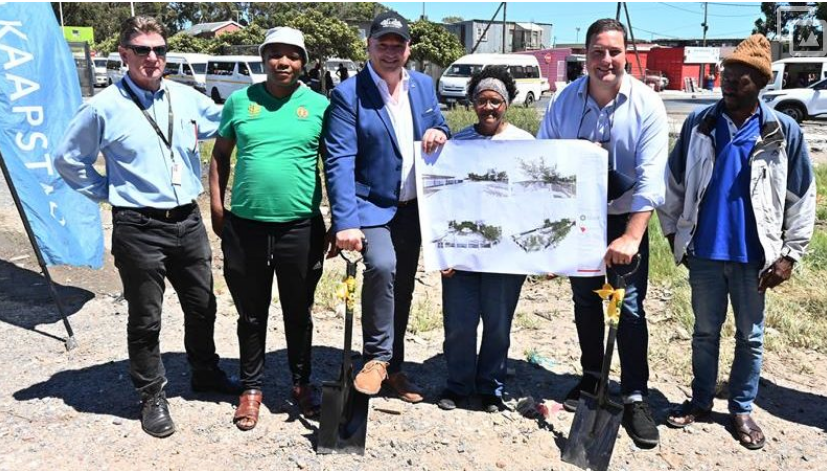Unrest: Construction sector will ‘benefit by default’

Advertising
22-07-2021
Read : 302 times
Moneyweb
Source
South Africa’s construction industry may receive a short term boost from the rebuilding of damaged and destroyed infrastructure, buildings and structures in last week’s unrest and looting but the longer term outlook for the sector is more uncertain.
Both the SA Forum of Civil Engineering Contractors (Safcec) and Master Builders South Africa (MBSA) believe the building and construction industry could receive a short term boost but have also highlighted the disruption to existing projects.
Constructus interruptus
MBSA executive director Roy Mnisi said on Wednesday some of the construction sites of its members had to close because of the unrest, which will result in a lot of litigation because these work stoppages will mean that some projects will now not be completed on time.
Mnisi said there were also delays in the arrival of some materials for projects, particularly imported materials, because of the closure of the port in Durban.
“A few members have already written to inform us about projects where force majeure has been declared,” he said.
Force majeure is a common clause in contracts that essentially frees both parties from liability or obligation when an extraordinary event or circumstance beyond their control prevents one or both parties from fulfilling their obligations under the contract.
“We will see some of these matters going to court,” he said.
Impact
Safcec CEO Webster Mfebe reported that the impact of the unrest on the industry will be dire given that it was struggling even before the Covid-19 lockdowns and the unrest.
Mfebe said contractors had to close sites for about a week due to the unrest to avoid major losses of plant and equipment while damage was caused to some projects, particularly SA National Road Agency (Sanral) projects such as the N2 and N3 in KwaZulu-Natal and the R22 from Hluhluwe to the Mozambique border.
He said the road surface has in some instances been damaged by the burning of trucks while some toll plazas were also damaged.
However, Mfebe said Safcec has not been notified by any of its members about force majeure being declared on any projects.
Mfebe confirmed the construction industry will “benefit by default” from rebuilding and repairing destroyed and damaged buildings and structures.
Reputational damage
Industry Insight senior economist David Metelerkamp said despite disruption to some construction sites, this will probably not have a huge impact on the industry in the short term.
Metelerkamp said South Africa’s reputation has been damaged “to some degree” together with investor confidence, which potentially has the ability to damage the country’s economic growth prospects over the longer term.
He said the rebuilding and repairs to damaged buildings and structures will provide a short term boost to the building and construction sector but doubts the impact will be massive.
Passion, spirit
Mnisi said MBSA takes comfort from the fact that the government’s infrastructure development programme is a long term plan despite delays in implementation.
Mnisi does not believe the infrastructure development plan will be impacted by the unrest and looting despite the bad picture it sends foreign investors.
“That is in our hands and it depends on how we deal with the crisis. We should not be focusing on the devastation but rebuilding.
“Everybody is rebuilding and that should boost the confidence of foreign investors,” said Mnisi.
He added that MBSA remains optimistic about the outlook for the building and construction industry and believes “there is space for investment to turn the corner” and to be expedited.
“If there is more of the passion and spirit that everybody is showing in terms of rebuilding from the devastation of property destruction and looting, the future looks much better in the sector,” said Mnisi.
Still a blow
Mfebe said infrastructure investment has been dealt a blow by the unrest and looting because of the impact on domestic and international business confidence in the South African economy.
This flows from the perception that the rule of law and maintenance of law and order is failing in the country, he said.
Mfebe said the government’s strategic integrated projects (SIPs) will be impacted, particularly if contractors are afraid to go back on site, but stressed the SIPs were insufficient to get the economy out of the doldrums.
“It is the enabling environment created for the private sector-initiated projects that will get this economy out of the doldrums, such as the issuance of permits and licences, which do not require government to spend a cent,” he said.
Mfebe is “cautiously optimistic” about the outlook for the construction sector, particularly in the road construction sector.
“For example, Sanral has been planning about 415 major projects valued at just over R60 billion from April this year up to the end of March next year, of which R50 billion are construction projects.
“Those projects are starting to be rolled out now and four projects, costing in excess of R2 billion, are in the final stages of adjudication as we speak,” he said.
Metelerkamp said the private sector was expected to take the reins with government on infrastructure development programme projects and that efforts by the government to get the private sector involved will be damaged if the unrest has eroded investor confidence in the economy.
“You then have to incentivise them [investors] even more.
“But it’s difficult to measure the degree or magnitude that investor confidence has been eroded,” he said.
Metelerkamp said some positives could come out of the unrest and looting from a political perspective, such as it providing an opportunity for the government to fast-track reforms “which could even outweigh the negatives in the longer term”.
However, he said the unrest and looting will derail the longer term recovery of the industry – especially the building sector, which is more private sector-driven than civil construction – if it has extensively damaged investor confidence.
Recent News
Here are recent news articles from the Building and Construction Industry.
Have you signed up for your free copy yet?
